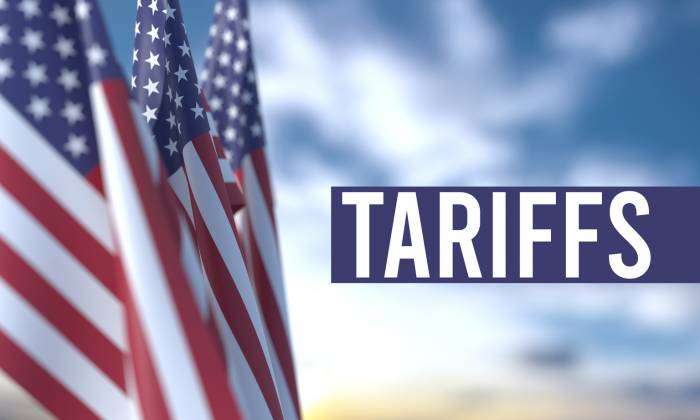Supreme Court Reviews $160 Billion in Tariff Revenue as Presidential Emergency Powers Face Scrutiny
2025-11-06
Wine importers and businesses await a decision that could reshape executive authority and impact federal deficit funding strategies.

The United States Supreme Court is set to hear arguments this week in a case that could determine the future of wine tariffs and the broader authority of the president to impose tariffs under emergency powers. The case, which began with a challenge from wine importer VOS Selections, questions whether President Donald Trump acted within his legal authority when he used a 1977 law to impose tariffs on imported wine and other products.
Arguments will focus on whether the International Emergency Economic Powers Act (IEEPA) allows the president to levy tariffs, even though the law does not specifically mention them. The IEEPA gives the president power to “regulate importation” during a national emergency, but the U.S. Constitution assigns the power to collect taxes and duties to Congress. The Trump administration has argued that if the president can prohibit imports entirely under IEEPA, then imposing tariffs is also within his authority. Lower courts have ruled against the administration, but those decisions are on hold pending Supreme Court review.
Legal experts say the stakes are high. A ruling against the administration could end many tariffs imposed since April and potentially trigger a budget crisis if the government is required to refund billions collected from importers. The U.S. Treasury reports that tariff revenue has increased from $7 billion to $30 billion per month since the new measures took effect, adding about $160 billion in revenue so far this fiscal year. With a federal deficit of $1.8 trillion, losing this income would leave Congress searching for alternative funding.
The Supreme Court’s decision could also clarify how much power Congress can delegate to the executive branch in economic matters. In recent years, justices have signaled skepticism toward vague statutes that give broad authority to government agencies—a principle known as the “major questions” doctrine. This was evident in last year’s Biden v. Nebraska decision, where the court struck down President Joe Biden’s student loan forgiveness plan because it relied on a broad interpretation of statutory language.
However, foreign affairs present a complication. The Trump administration argues that presidents have greater latitude in international matters, and that courts should defer to executive judgment in these cases. Legal scholars note that this case could become a defining moment for Chief Justice John Roberts’ court as it weighs presidential power against congressional authority.
Amicus briefs filed by outside groups highlight broader concerns about unchecked emergency powers. The Brennan Center for Justice warns that allowing presidents to use emergency declarations to bypass Congress could open the door to misuse of dozens of other powers, some of which are highly susceptible to abuse.
Economic research suggests that American consumers and businesses bear most of the cost of tariffs. A recent working paper from the American Association of Wine Economists found that U.S. consumers paid more than the government collected in tariff revenue due to increased markups along the supply chain. The study also notes that price increases take about a year to reach retail shelves, meaning consumers may continue feeling effects even if tariffs are struck down.
Another legal argument comes from BRB Management, owner of small retail stores, which contends that IEEPA only applies to property owned by foreign entities at the time tariffs are imposed. Since most imported goods are owned by U.S. companies once they arrive at American ports, BRB argues that IEEPA cannot authorize tariffs on these products.
The Supreme Court has recognized the significance of this case by granting extended time for oral arguments and questions. While there is no set timeline for a decision, a ruling is expected well before June 2026 due to the expedited nature of the case.
The outcome will have immediate consequences for wine importers and could reshape how future presidents use emergency powers in trade policy. As both sides prepare their arguments, industry stakeholders and legal observers are watching closely for signals from the justices on how they will balance executive authority with congressional oversight in one of the most consequential trade cases in recent years.
Founded in 2007, Vinetur® is a registered trademark of VGSC S.L. with a long history in the wine industry.
VGSC, S.L. with VAT number B70255591 is a spanish company legally registered in the Commercial Register of the city of Santiago de Compostela, with registration number: Bulletin 181, Reference 356049 in Volume 13, Page 107, Section 6, Sheet 45028, Entry 2.
Email: contact@vinetur.com
Headquarters and offices located in Vilagarcia de Arousa, Spain.